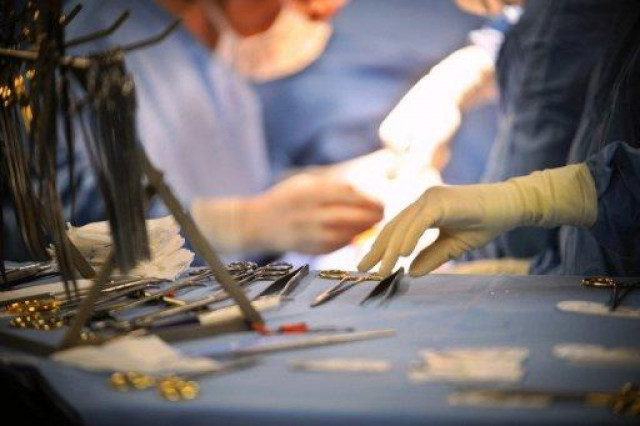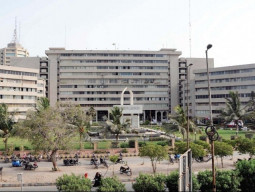
Surgeons from across Pakistan have been in Karachi for three days to watch a Polish colorectal surgery expert, Prof. Dr Adam Dziki of Medical University, Lodz, perform some of the difficult and complex procedures that they face.
Colorectal diseases include some of the most embarrassing conditions that can afflict the human body. They can range from the mildly irritating to the life-threatening. The more commonly known ones are haemorrhoids, colorectal cancer, ulcerative colitis, Crohn’s Disease, Irritable Bowel Syndrome, anal fissures and bowel incontinence.

Dr Dziki was invited as a trainer for the eighth annual colorectal week, organised by Associate Prof. Shamim Qureshi of Jinnah Postgraduate Medical Centre from September 30 to October 3. So far, the sessions have brought four trainers from the UK, one from the US, one from Greece and one from India. The event attracts surgeons from across Pakistan.
Colorectal disease afflicts a large portion of our population. Dr Qureshi gave an example by saying that his ward at JPMC sees 20 patients a month alone. They come with haemorrhoids, colorectal cancer, bowel disease and fistula, something that also affects men, contrary to common perception.
“The main symptom is bleeding,” said Dr Qureshi, adding that because it affected the private parts people are reluctant to go see a doctor immediately. “It is neglected for a long time and they come to the surgeon late.” General practitioners also fail to examine patients properly because of the embarrassing nature of the symptoms.
“There is a lot more that should be done,” Dr Dziki said. “Colorectal cancer is the second highest after the breast in women and lung in men. The media needs to create more awareness.” When asked what was the general profile of patient type who got colorectal diseases, he said that he recommended that if you were over 50 years, you should get a colonoscopy to check for polyps or growths on your intestines. “But we are seeing it in the younger population too,” he warned.
Dr Dziki demonstrated, among others, how to perform surgery for ulcerative colitis, an inflammation of the lining of the large bowel which, if left untreated, can lead to cancer. The surgery is notoriously difficult and few people in Pakistan can do it well. It involves removing the entire large intestine and connecting the small intestine to the rectum. He also did surgery for rectal prolapse in which the rectum becomes stretched out and protrudes out of the body.
The surgeons who attended the training, at least 70 in number, came from all over the country, Sukkur, Multan, Quetta, Haripur, Rawalpindi. Dr Durre Shahwar, an associate professor of general surgery at Pak International Medical College in Peshawar, for example, said that she had decided to come to Karachi to meet senior surgeons and discover what was new in the field. She said there weren’t enough women specialising in this area, where they were needed. “Women in Peshawar do not want to see a male surgeon for this kind of thing,” she explained.
Dr Dziki was surprised with the level of expertise he encountered on his first visit to Pakistan. “What they are doing surprises, such modern medicine in such difficult conditions,” he said. “There are top notch diagnostic tools available too.” He added, however, that he felt two areas where Pakistani surgeons could improve are hygiene and better patient management.
Senior surgeons stressed specialising; gone are the days of ‘general’ surgery. The law of numbers apply here; the more of a particular procedure you do, the better you get. Former JPMC professor, Dr Mumtaz Maher, recommended that younger and older surgeons learn to refer cases to the experts if they are out of their depth because they do them only, say once a year. If, for example, a surgeon gets a child with a rectal prolapse, they would be wise to refer it to a paediatric surgeon who may have done more cases.
Published in The Express Tribune, October 3rd, 2013.


















COMMENTS
Comments are moderated and generally will be posted if they are on-topic and not abusive.
For more information, please see our Comments FAQ